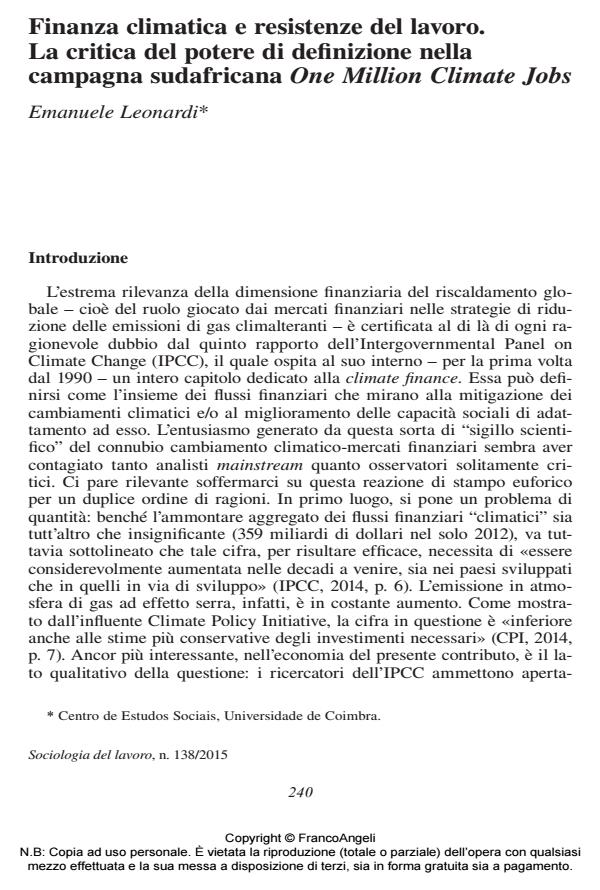Climate Finance and Labor Resistances. The Critique of Definitory Power in the South Africa Campaign One Million Climate Jobs
Journal title SOCIOLOGIA DEL LAVORO
Author/s Emanuele Leonardi
Publishing Year 2015 Issue 2015/138
Language Italian Pages 15 P. 240-254 File size 124 KB
DOI 10.3280/SL2015-138015
DOI is like a bar code for intellectual property: to have more infomation
click here
Below, you can see the article first page
If you want to buy this article in PDF format, you can do it, following the instructions to buy download credits

FrancoAngeli is member of Publishers International Linking Association, Inc (PILA), a not-for-profit association which run the CrossRef service enabling links to and from online scholarly content.
The paper argues that the increasing importance of the financial dimension of climate change is mostly due to an epochal transformation in the social composition of labor (emergence of cognitive capitalism) and to its subsumption under financial capital. The author’s aim is to understand as well as criticize such twofold process. He firstly discuss the notion of definitory power - through a reference to Ulrich Beck and Christian Marazzi - and the way it reframes the links between class-situations and risk-situations. Subsequently, he analyzes how such power has historically shaped carbon markets, namely the privileged agents of the financialization of global warming. Finally, he focuses on the case study represented by the South Africa campaign One Million Climate Jobs to highlight how climate justice enacts an alternative vision of the relationship between labor and climate change.
Keywords: Carbon trading, climate justice, cognitive capitalism, financialization of climate change, definitory power, One Million Climate Jobs campaign
- Sindacato e politiche industriali in transizione. Il caso di industria italiana autobus Charlotte Bez, Angelo Castellani, Emanuela La Rocca, Gianluca Sala, in ECONOMIA E SOCIETÀ REGIONALE 2/2024 pp.41
DOI: 10.3280/ES2024-002004
Emanuele Leonardi, Finanza climatica e resistenze del lavoro. La critica del potere di definizione nella campagna sudafricana One Million Climate Jobs in "SOCIOLOGIA DEL LAVORO " 138/2015, pp 240-254, DOI: 10.3280/SL2015-138015